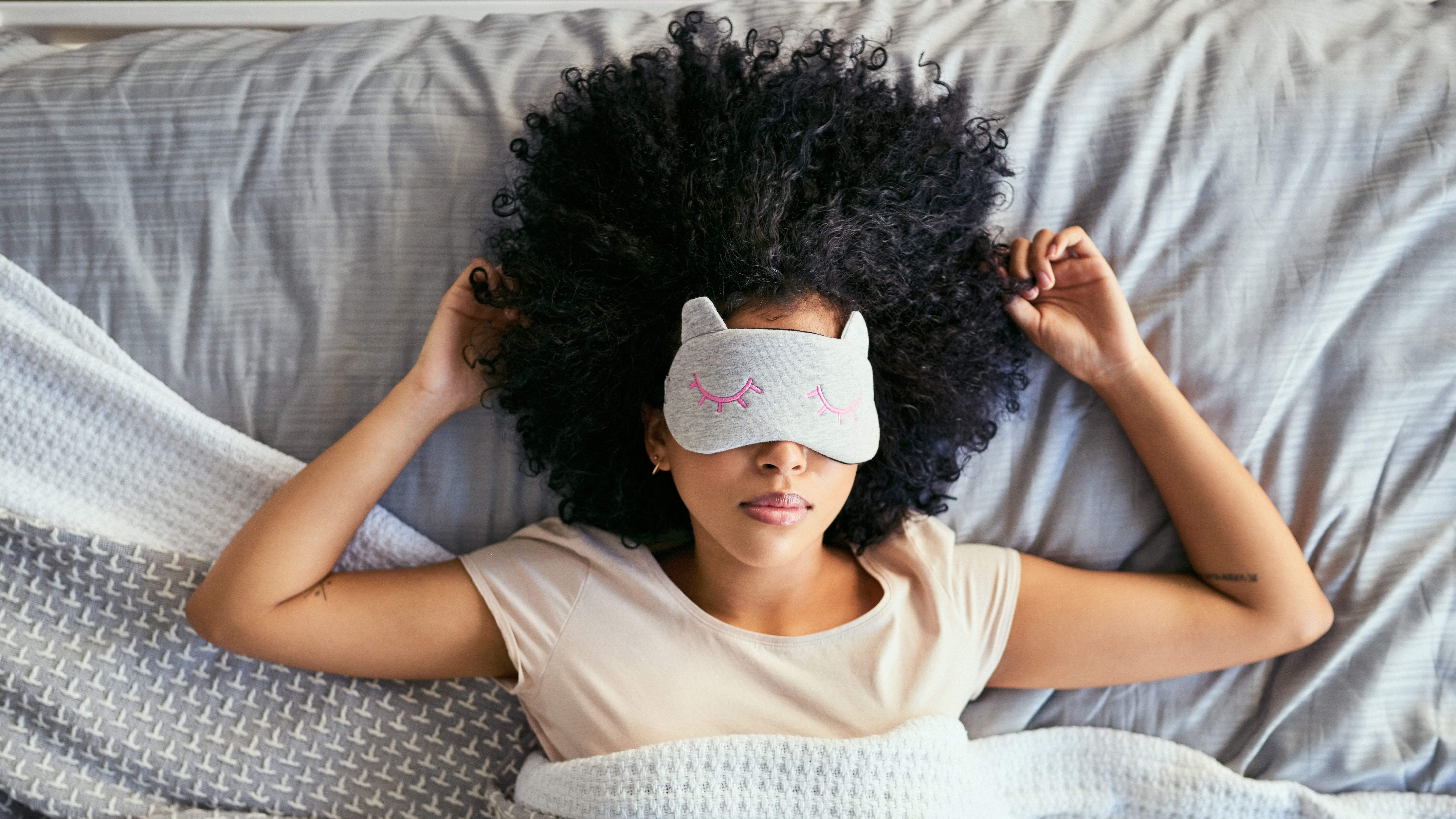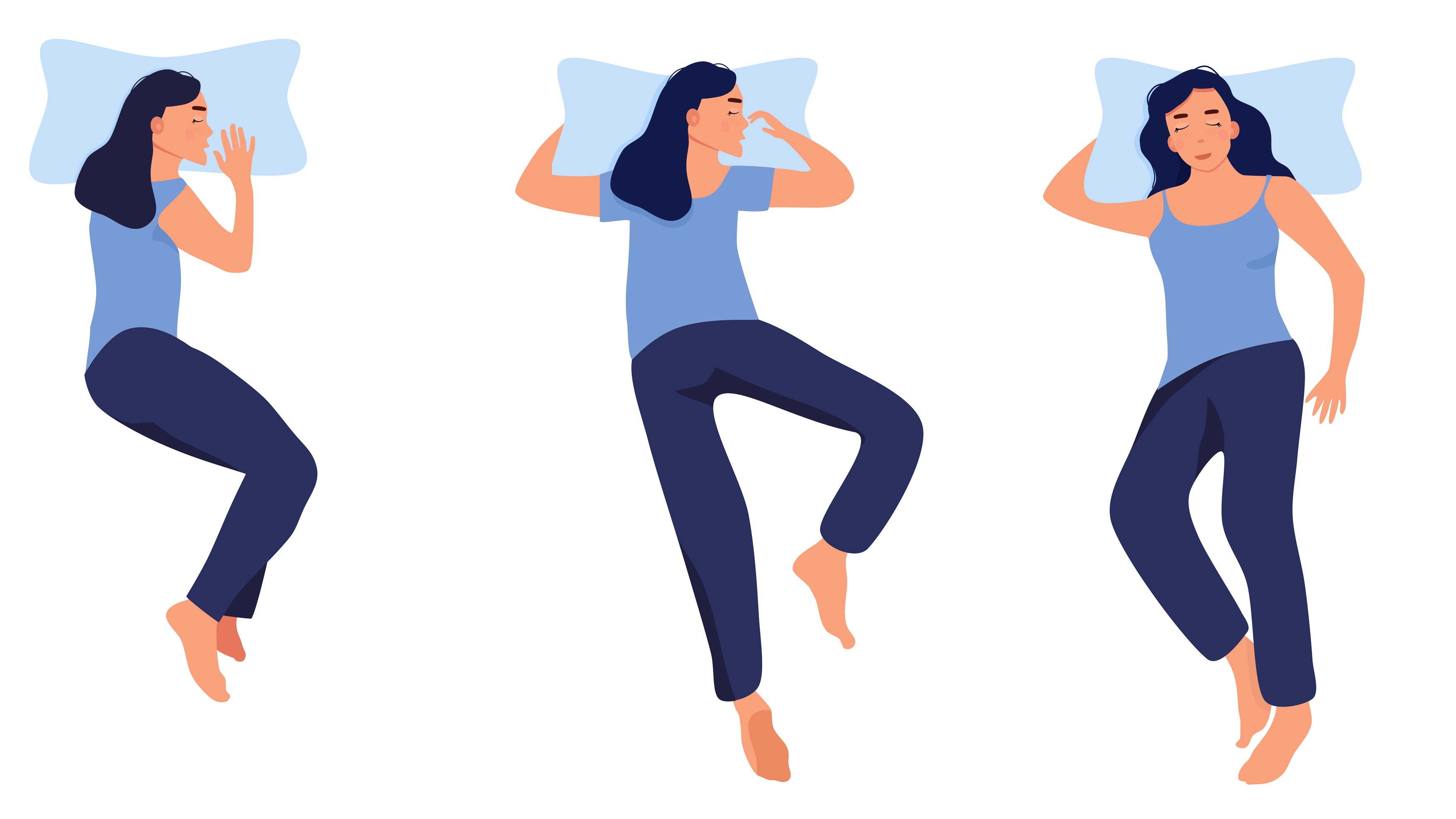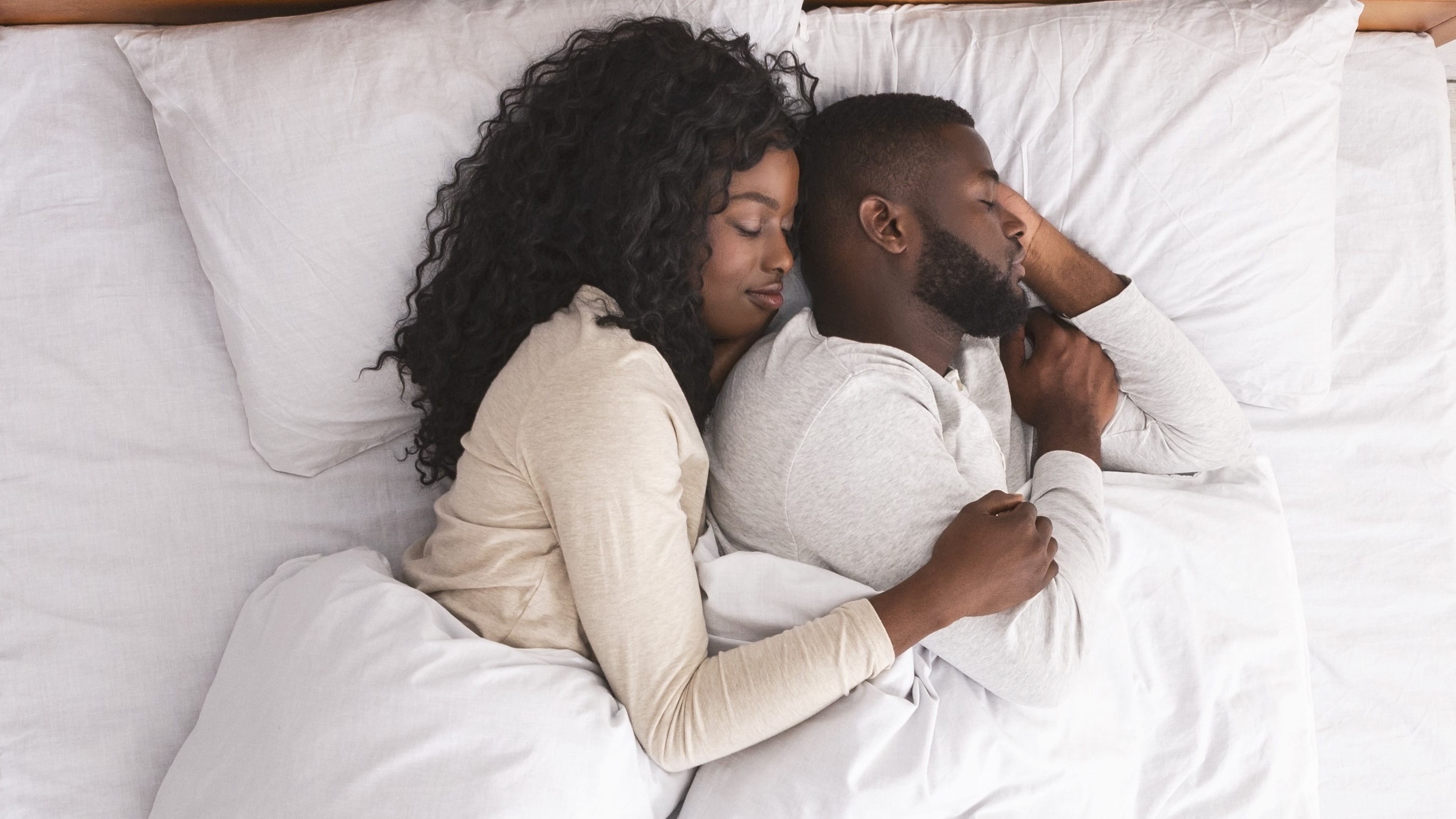How your sleeping position could be affecting your health
Experts explain how the most common sleeping positions could impact your wellbeing


We all have a preferred sleeping position, whether you gravitate to the fetal position, snooze on your front or prefer to spread out on your back when you drift off. You work with what feels good for you, but could your go-to position be impacting your health?
While having the best pillow for your sleeping position is important to ensure you're supported and comfortable throughout the night, your actual sleeping position can affect your health, particularly impacting your body alignment and how you'll feel when you wake up the next day.
To help you understand more about sleeping positions and the effect they can have, we spoke to the experts. They shared with us the pros and cons of each sleeping position, from those that can cause back pain at night to the positions that can affect conditions such as sleep apnea.
And if you do suffer with neck pain after a night's sleep, see our guide to the best pillows for neck pain.
What are the best sleeping positions?
According to Dr Verena Senn, sleep expert at Emma Mattresses, the best sleeping position for you is very much down to individual preference. What you find comfortable could be very uncomfortable for someone else.
“The most popular sleep positions are on our side, stomach or back, and whilst all have benefits, some positions offer more benefits than others,” Dr Senn explains.
But, Dr Senn adds, “It’s important to remember we are all mixed sleepers and tossing and turning all night isn’t necessarily a bad thing. Moving around whilst sleeping helps to relieve pressure from the body, allowing for maximum regeneration.”
Sign up to our free daily email for the latest royal and entertainment news, interesting opinion, expert advice on styling and beauty trends, and no-nonsense guides to the health and wellness questions you want answered.
While we shouldn't worry too much about the position we fall asleep or wake up in, there are a few things to keep in mind when it comes to how different sleeping positions could impact your health.

The fetal position
The fetal position, on your side with your legs tucked up into your body, mimics how you were in the womb, and research shows that 41% of us adopt this position when we sleep.
But how can it affect our sleep and our overall health? If you’re a snorer then this is a great position to lie in, as it relaxes your throat and nose area. However, if you wake up a lot in the night with upper or lower back pain, it could be down to this sleep position, says Dr Guy Meadows, from Sleep School app
“While it comes with many of the same benefits as sleeping on your side, it takes your spine out of neutral alignment, increasing the chance of pain-related sleep disturbance,” Dr Meadows explains.
Sleeping on your stomach
Even if we don’t choose this position, when moving around in our sleep some of us find ourselves waking up on our front, often with our arms feeling numb and tingling. But, if you do actively choose to sleep in this position, you could be putting pressure on other parts of your body.
“Although it’s one of the most popular sleep positions, sleeping on your stomach is not recommended, as it can put intense strain and pressure on the spine, whilst also causing both neck and back pain,” says Dr Senn.
Dr Meadows explains how this position could have long and short-term effects on your health. “The risk of waking up with numbness and tingling also increases, due to trapped nerves. Over time, sleeping in this position is likely to make your mornings, at best stiff and achy and at worst painful and with the need to visit a physiotherapist.”
Sleeping on your side
For many, sleeping on their side is the most comfortable of the sleeping positions. In fact, research shows an overwhelming number of us choose to sleep on our side.
Dr Senn believes there can be some benefits of adopting this position. “Sleeping on your side has been found to be particularly beneficial as it’s been shown to cause less back pain. Sleeping on your left side has also proved to be particularly good for expectant mothers, as healthy blood flow is increased, ensuring optimal oxygen supply for both the baby and the mother.“
But, the sleep doctor adds, “Sleeping on your side can also cause intense pressure in the shoulder and neck area, although a pillow specifically designed for neck pain can help correct this for a comfortable night’s sleep.”
If you’re adamant about sleeping on your side, make sure your pillow is the right size and firm enough for you. “As a rule of thumb, choose a pillow that continues the natural line of your spine, all the way from your lower back to your head. You’ll know it’s right because your neck and shoulders will be relaxed and your airway open,” adds Dr Meadows.
Sleeping on your back
While sleeping on your back is often thought to be a great way to avoid wrinkles, Dr Meadows points out that the health risks of lying flat on your back could outweigh those potential anti-aging effects.
“Medical conditions such as snoring, sleep apnea, acid reflux and poor circulation, are just a few that can be made worse by lying flat all night," Dr Meadows explains.
If you’re a snorer, this position could trigger it or make it worse, says Dr Senn. “Lying on your back causes the base of your tongue and soft palate to collapse to the back wall of your throat.”

The best sleeping positions for couples
Over half of us share a bed with someone and while some people can find it annoying and avoid their partners while they snooze, others like to cuddle up to each other.
Research shows that over half of us turn our backs on our partners in bed, which is fine if both of you are happy to sleep this way. But, cuddling up to your partner, or spooning at night, can increase your level of the bonding hormone oxytocin, which in turn decreases cortisol – otherwise known as the stress hormone.
In other research by the University of Hertfordshire it was found that only 4% of couples spent the night facing each other. But 94% of participants who spent the night in contact with one another felt happy in their relationship, compared 68% of those who weren’t in contact during the night.
While it’s important that you and your partner pick the right sleeping positions for your own individual needs, if you're feeling a little disconnected from each other, make it part of your bedtime routine to get into bed earlier than normal and spend some time spooning or chatting face to face before you both switch to your go-to sleeping positions.
Sarah is a freelance journalist - writing about the royals and celebrities for Woman & Home, fitness and beauty for the Evening Standard and how the world of work has changed due to the pandemic for the BBC.
She also covers a variety of other subjects and loves interviewing leaders and innovators in the beauty, travel and wellness worlds for numerous UK and overseas publications.
As a journalist, she has written thousands of profile pieces - interviewing CEOs, real-life case studies and celebrities - interviewing everyone from Emma Bunton to the founder of Headspace.
